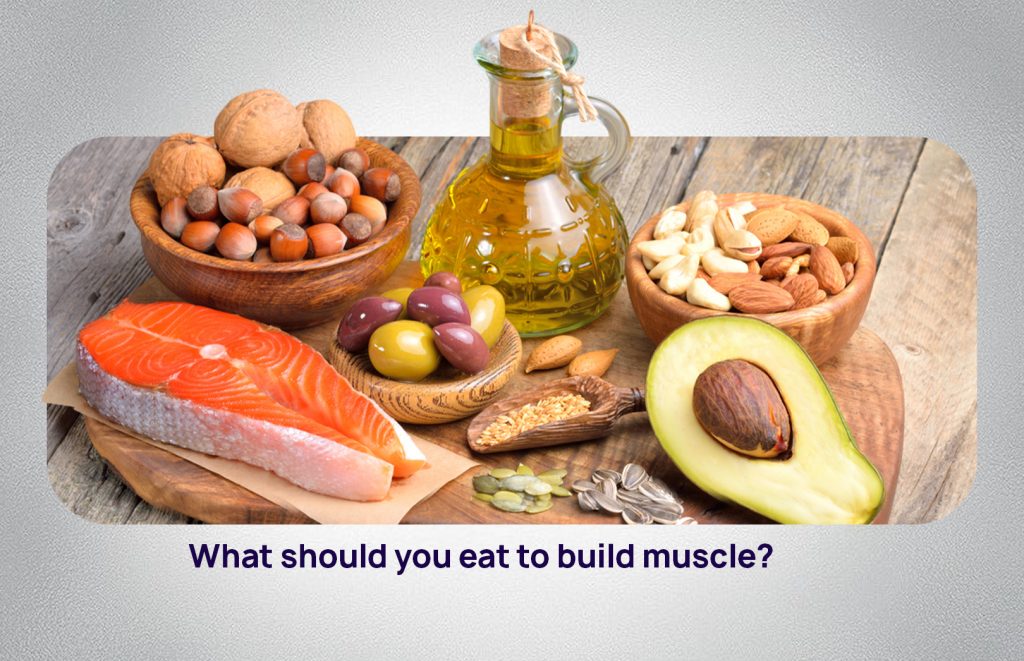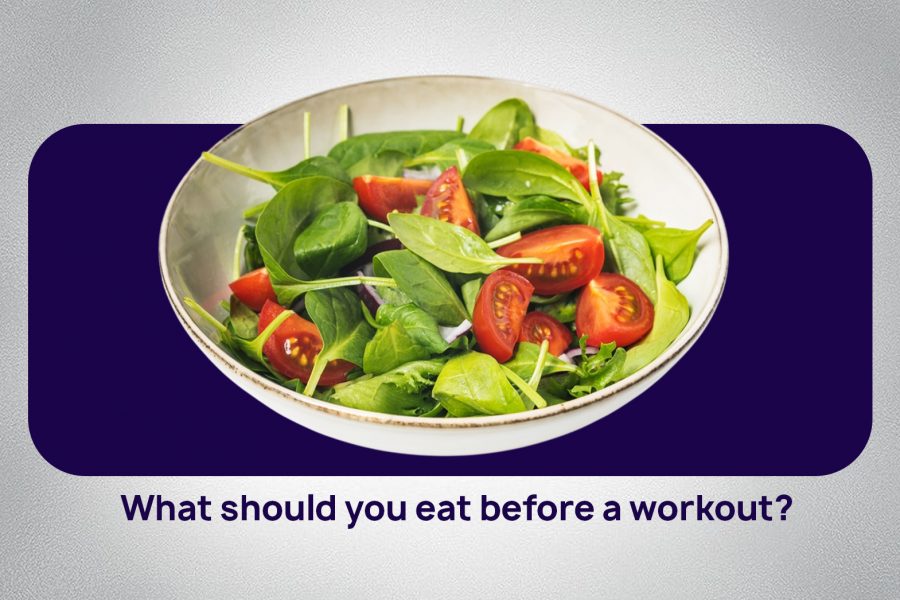Building muscle isn’t just about lifting weights; nutrition plays a crucial role in muscle growth and recovery. The right combination of proteins, carbohydrates, healthy fats, and micronutrients fuels muscle development and enhances performance. In this guide, we’ll explore the best foods to build muscle, meal timing strategies, and essential nutrition tips for maximizing your gains.

1. Protein: The Building Block of Muscles
Protein provides amino acids that repair and grow muscle tissue. To support muscle protein synthesis, aim for 0.8-1 gram of protein per pound of body weight daily. The best protein sources include:
- Lean meats (chicken, turkey, beef)
- Fish (salmon, tuna, cod)
- Eggs (rich in leucine for muscle growth)
- Dairy products (Greek yogurt, cottage cheese)
- Plant-based proteins (tofu, tempeh, lentils, chickpeas)
2. Complex Carbohydrates for Energy
Carbohydrates provide the fuel needed for intense workouts and aid muscle recovery. Choose complex carbs for sustained energy release:
- Whole grains (brown rice, quinoa, oats)
- Sweet potatoes (rich in fiber and vitamins)
- Fruits (bananas, apples, berries)
- Legumes (black beans, lentils, chickpeas)
Tip: Consuming carbs before and after workouts replenishes glycogen stores and supports muscle recovery.
3. Healthy Fats for Hormone Production
Healthy fats support hormone production, including testosterone, which is vital for muscle growth. Include:
- Avocados (rich in monounsaturated fats)
- Nuts & Seeds (almonds, walnuts, chia seeds, flaxseeds)
- Olive oil (heart-healthy and anti-inflammatory)
- Fatty fish (salmon, mackerel, sardines)
4. Essential Micronutrients for Muscle Function
Micronutrients play a key role in muscle function and recovery:
- Vitamin D (supports muscle strength – found in salmon, fortified dairy, and sunlight)
- Magnesium (reduces muscle cramps – found in nuts, seeds, spinach)
- Zinc (aids muscle repair – found in beef, pumpkin seeds, chickpeas)
- Iron (oxygen transport – found in red meat, lentils, spinach)
5. Hydration: The Overlooked Factor
Water is essential for transporting nutrients to muscles, preventing cramps, and maintaining endurance. Follow these hydration tips:
- Drink 16-20 oz (500-600 ml) of water 2-3 hours before exercise
- Sip 8-10 oz (250-300 ml) during workouts
- Rehydrate post-workout, especially if sweating heavily
- Include electrolytes (sodium, potassium, magnesium) for long or intense workouts

6. Meal Timing: When to Eat for Maximum Muscle Growth
Strategic meal timing enhances muscle recovery and performance:
- Pre-workout (1-2 hours before): Protein + complex carbs (e.g., chicken & brown rice)
- Post-workout (within 30-60 minutes): Fast-digesting protein + simple carbs (e.g., protein shake & banana)
- Throughout the day: Spread protein intake evenly across 4-6 meals to optimize muscle protein synthesis
7. Consistency and Caloric Intake for Muscle Growth
To gain muscle effectively, maintain a slight caloric surplus while balancing macronutrients.
- Increase calories by 250-500 per day for lean muscle gains
- Track macros and adjust intake based on progress
- Avoid excessive fat gain by focusing on clean bulking (nutrient-dense foods over processed foods)
More related blogs :
- why do pepole have such a hard time to loseing belly fat
- should childern lift weights
- is it possible to lose fat by doing only cardio
Conclusion
Building muscle requires more than just lifting weights; a well-balanced diet is essential. Focus on high-quality protein, complex carbs, healthy fats, and essential micronutrients while maintaining proper hydration and meal timing. By following these strategies and staying consistent, you’ll optimize muscle growth and achieve your fitness goals effectively.
FAQs: Best Foods to Build Muscle
1. What are the best high-protein foods for muscle growth?
Lean meats, eggs, fish, dairy, and plant-based proteins like tofu and lentils.
2. How many meals should I eat per day to build muscle?
Aim for 4-6 meals per day, ensuring protein intake is evenly distributed.
3. Should I take supplements for muscle building?
Whole foods should be your priority, but whey protein, creatine, and BCAAs can enhance muscle gains when used appropriately.
With the right nutrition plan, you can fuel your muscles, enhance recovery, and maximize strength gains!






